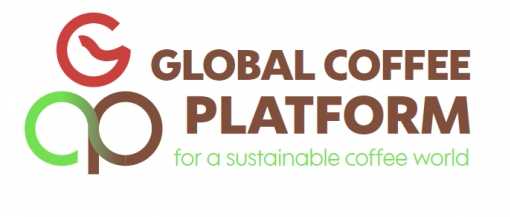BONN, Germany – The GCP Members and partners have been actively engaged in their broader communities through informative and interactive webinars. Catch up on three webinars recently held in Honduras, Brazil and Indonesia.
In Honduras, OIRSA, the Regional Animal and Plant Health Organization hosted a series of four webinars for the agricultural sector on the topic of agriculture in the face of COVID-19.
Honduras: Strategies for Sustainable Coffee during Covid-19
Targeted towards Latin America and organized in partnership with Food and Agriculture Organization of the United Nations (FAO) and the Andrean Community, the latest webinar featured a presentation from Guillermo Alvarado, GCP Program Manager – Honduras on Strategies for Sustainable Coffee during COVID-19.
According to Alvarado, the webinar was an opportunity to orient the Latin American coffee industry on strategies to cope with COVID-19 effects on the sustainable coffee value chain. The webinar attracted more than 350 participants mostly from Spanish America, from Mexico to Chile. Many members of the Honduran Sustainable Coffee Platform and featured presentations from:
- Jaime Cardenas, Deputy Manager Vegetable Production, ICA, Colombia
- Rene Leon-Gomez Rodas, Executive Secretary of PROMECAFE, Guatemala
The panelists made a concise analysis of the impact of COVID-19 on the sustainable coffee value chain; mostly in labor health and operations, and logistics of inputs, production and services. And provided strategic recommendations to cope with it, as to protect health and keep production and logistics running.
Watch the webinar here (Spanish)
Indonesia: The Indonesian Government and Coffee Supply Chain Maintains Coffee Productivity and Market During COVID-19
The COVID-19 pandemic has impacted multiple sectors in Indonesia, including the coffee supply chain. In response to the situation, on April 16, 2020, the Sustainable Coffee Platform of Indonesia (SCOPI) supported by the Global Coffee Platform (GCP) held a virtual DISKO (Diskusi Kopi/Coffee Discussion) event, with the topic entitled “Anticipating COVID-19 Impacts on the Coffee Sector Supply Chain”.
The webinar, a first of its kind, saw more than 100 participants join the discussion, hosted by Zivanna Letisha Siregar, a national TV host and Miss Indonesia Universe 2009. Presentations were made by M. Riza Damanik, Special Staff to the Indonesian Minister of Cooperatives and Small Medium Entreprises (SMEs); Hendratmojo Bagus Hudoro, Head of Sub-Directorat, Directorat General of Plantation, the Indonesia Ministry of Agriculture, as well as Wildan Mustofa from CV Frinsa, representing SCOPI Board Member and SCOPI Master Trainers.
Opening the discussion session, the Executive Director of SCOPI, Paramita Mentari Kesuma, explained the result of a survey of SCOPI Members, Master Trainers and assisted farmers in 15 provinces on issues relating to the virus. Almost 90% of respondents were aware of the COVID-19 pandemic, however, most of had not received clear information on the available support from the central and local government to cooperatives and coffee farmers.
Additionally, stakeholders shared their needs and desired support for the coffee supply chain during this hard time. They include direct financing support, cash allowances for operations, tax incentives, and warehouse facility that can be accessed by farmers and the SMEs.
M. Riza Damanik from the Ministry of Cooperative and SMEs explained that the Government had been exploring schemes and programs to help the micro, small and medium enterprises, including cooperatives and the coffee community in anticipating the COVID-19 pandemic. Budget allocations for health, social safety nets and support the SMEs have become the Government’s priority. There are credit relaxation and stimuli for cooperatives and SMEs, Kartu Pra Kerja (Pre-Work Card), cash allowances, stimuli for SMEs product and SMEs involvement in non-medic masks production.
Meanwhile, Hendratmojo Bagus Hudoro from the Ministry of Agriculture presented several policies such as credit relaxation and alternatives for export markets.
Representing SCOPI’s Board Members, Wildan Mustofa from CV Frinsa explained that SMEs had been adapting to coffee selling schemes, such as focusing on online trade and giving discounts. Small and medium scale cafes have adopted a few sales tactics such as becoming a market place partners, providing discounts and delivery service. The sales have severely decreased by approximately 90%. The upstream players will continue to buy coffee from farmers, however, at a smaller amount.
As a follow-up to the discussion, SCOPI has been developing a scheme for concrete actions that can be undertaken. SCOPI is also in the progress of developing a COVID-19 Resource Center on its website, filled with relevant links and Q&As on COVID- 19 related to the coffee sector in Indonesia.
Brazil: Collective Action Initiative on Social Well-Being
During the first instalment of GCP’s Field Days webinar series, GCP Brazil presented the new Collective Action Initiative on Social Well-being. Part of the webinar included an address on how GCP is managing during a time of COVID-19, as well as how best practice, government and WHO guidelines around corona virus are being included into the new initiative.
The webinar provided insights into the new GCP Collective Action Initiative, which is still open for co-funding opportunities.
Watch the full webinar here.















